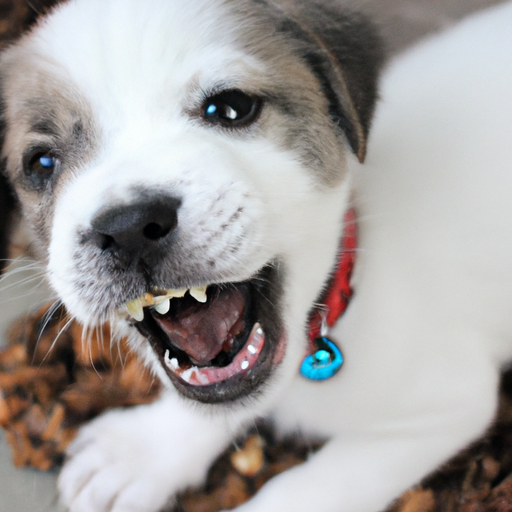As a proud and caring puppy parent, you’ve likely noticed the tiny, needle-like teeth your furry friend sports. Those are their baby teeth, also known as deciduous teeth, and like with human babies, these teeth will eventually fall out and be replaced by permanent adult teeth. This process is a natural part of your puppy’s development, but it can also cause discomfort and raise a lot of questions. When should you expect these teeth to fall out? What’s normal and what’s cause for concern? This guide will answer all these questions and more, to help you navigate this milestone in your puppy’s life.
Table of Contents
1. Understanding Puppy Teeth
2. When Do Puppy Teeth Fall Out?
3. Symptoms of Teething
4. How to Help Your Teething Puppy
5. Potential Problems and Solutions
6. Frequently Asked Questions
Key Takeaways
– Puppies typically start losing their baby teeth around 12-16 weeks of age.
– Teething can cause discomfort, and puppies may chew more during this time.
– Regular check-ups with a vet are important to ensure healthy dental development.
– Certain toys and treats can help soothe a teething puppy.
Understanding Puppy Teeth
Like humans, dogs are diphyodonts, meaning they have two sets of teeth in their lifetime. The first set, the deciduous teeth, appear when the puppy is about 3-6 weeks old. There are usually 28 of these sharp, needle-like teeth. Puppies use them to explore their world and, if you’ve ever been nipped by a puppy, you know just how sharp these teeth can be!
When Do Puppy Teeth Fall Out?
Puppy teeth begin to shed when the puppy is around 12-16 weeks old. The process is gradual, with the incisors (the small front teeth) falling out first, followed by the canines and premolars. By the time the puppy is about 6-7 months old, all the baby teeth should have fallen out, replaced by 42 adult teeth. This article from the American Kennel Club provides an excellent timeline for puppy teeth.
Throughout this process, be sure to check your puppy’s mouth regularly. This will help you monitor their dental development and ensure everything is progressing as it should.
Symptoms of Teething
Teething can be an uncomfortable process for your puppy, and there are several signs to watch out for. Some common symptoms include:
- Increased chewing: Puppies naturally chew to explore their world, but during teething, this activity can increase as they seek to alleviate gum discomfort.
- Drooling: Excessive drooling can be a sign of teething.
- Missing teeth: As the baby teeth fall out and adult teeth come in, you may notice gaps in your puppy’s mouth.
- Change in appetite: Some puppies may eat less due to the discomfort of teething.
How to Help Your Teething Puppy
There are several ways to help soothe your puppy’s discomfort during this time.
- Chew Toys: Providing safe and appropriate chew toys can alleviate some of the discomfort of teething. Onetopdog has some excellent recommendations.
- Cold Treats: Just like with human babies, cold can help numb the gums and provide relief. Frozen carrots or special puppy teething toys can be helpful.
- Regular Veterinary Check-ups: Regular check-ups with your vet are crucial during this time. They can help ensure that your puppy’s teeth are developing correctly and address any potential issues early.
Potential Problems and Solutions
While teething is a natural process, there can sometimes be complications. These might include retained baby teeth, where the baby teeth don’t fall out properly, or misalignment of adult teeth. If you notice anything unusual or worrisome, it’s always a good idea to consult with your vet. This article provides some helpful information on common puppy dental problems and how to address them.
Frequently Asked Questions
-
When do puppies start getting their teeth?
Puppies start getting their baby teeth when they are about 3-6 weeks old. -
When do puppies start losing their teeth?
Puppies typically start losing their baby teeth around 12-16 weeks of age. -
What are the signs that my puppy is teething?
Common signs of teething include increased chewing, excessive drooling, missing teeth, and a change in appetite. -
How can I help my teething puppy?
Providing safe chew toys, cold treats, and regular veterinary check-ups can help soothe your puppy during the teething process.
In conclusion, teething is a natural part of your puppy’s development. By understanding this process and knowing how to support your puppy, you can help them navigate this stage with ease. Remember to always consult with your vet if you have any concerns about your puppy’s dental health. This guide can also provide additional information on puppy teething.



